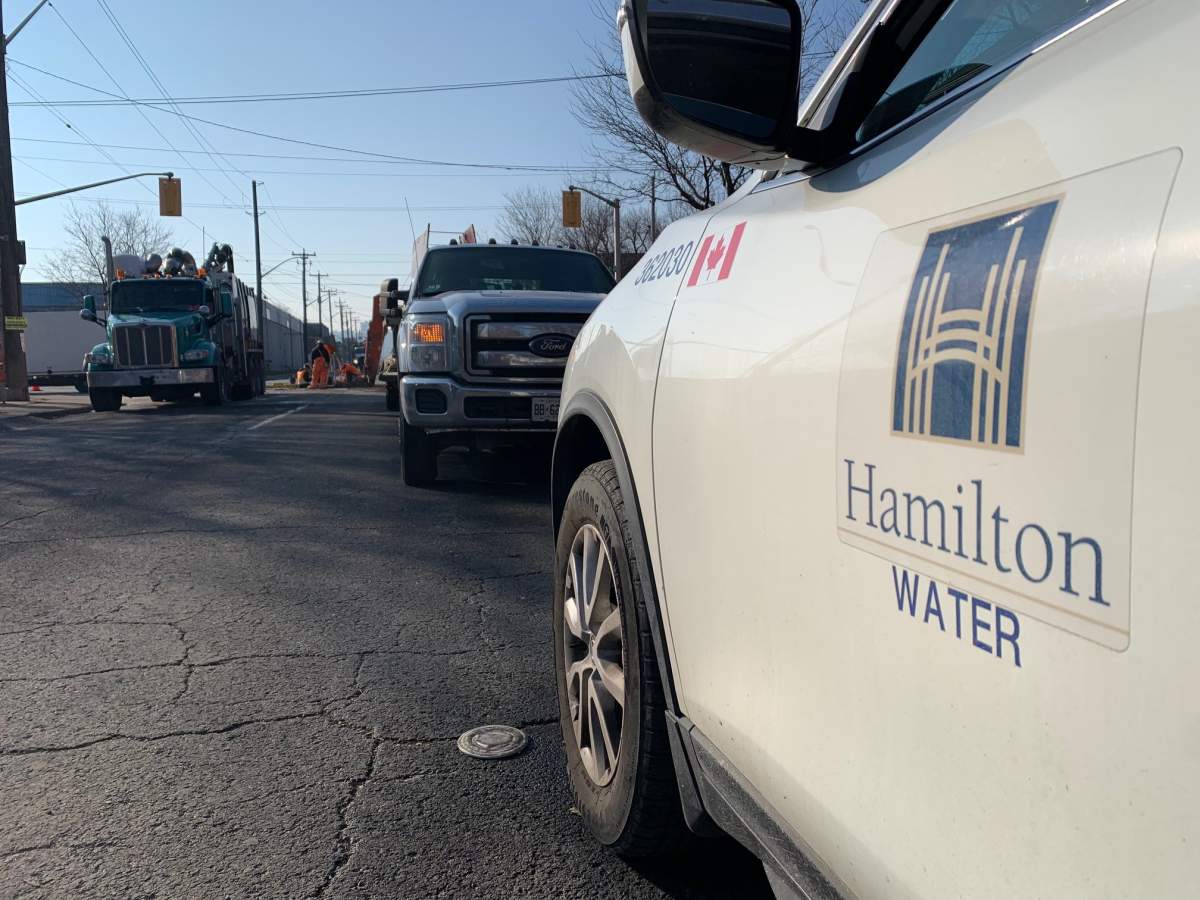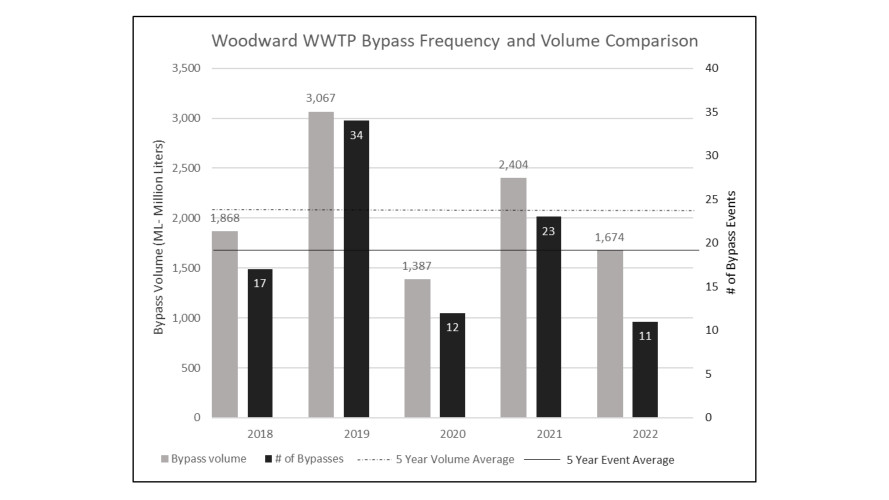New numbers released by Hamilton’s water and wastewater operations revealed a drop in the amount of sewage that escaped into the harbour last year from the city’s east-end treatment facility.

The city’s director of water and wastewater Shane McAuley told councillors 2022 was a “drier than normal year,” resulting in a sizable drop in the amount of untreated or partially treated wastewater that bypassed the Woodward Wastewater Treatment Plant during times of heavy rain.
Woodward, which discharges treated effluent into Hamilton Harbour via the Red Hill Creek, had been working at reduced capacity for most of 2022 amid ongoing upgrades.
Typically, Woodward provides full treatment of wet weather flows up to 614 million litres per day, but was limited to just 526 until December 2022.
The number of overflow events at the site in 2022 was below five-year averages, with the most notable instance a late March event caused by wet weather, resulting in a bypass for one hour and 41 minutes.
“In total, there were 11 sewage overflows last year, resulting in 1700 million litres being seeped into the bay,” McCauley said.

Get daily National news
“That’s down from 23 incidents and 2,400 million litres in 2021.”
The city operates two wastewater treatment plants that discharge into Hamilton Harbour via two different routes – Woodward in the east and the Dundas Wastewater Treatment Plant, which pours out through the Desjardins Canal.
McCauly told the public works committee on Wednesday that ongoing upgrades continue at Woodward in order to “delist” Hamilton Harbour as an area of concern.
“The current work is really about the quality of effluent that’s taking place. The Phase 2 will be the expansion of that plant, which will allow us to treat higher volumes of wastewater capacity so that we’ll be able to reduce those bypasses even further.”
In 2019, council directed Hamilton water to provide the public works committee with an annual report on discharges to the natural environment from the Dundas and Woodward wastewater treatment plants.
In recent times, the city has been under scrutiny from the Ministry of Environment, Conservation and Parks (MECP), requiring it not only to complete a dredging of Chedoke Creek, following a 24-billion-litre untreated wastewater spill between 2014 and 2018, but also to carry out ongoing audits of city sewage infrastructure.
The latter was the result of several discoveries across older parts of the city that saw combined sewage and stormwater connections discharging into the harbour.
Bypasses are currently being reported to the ministry and to public health as required by provincial regulation.










Comments
Want to discuss? Please read our Commenting Policy first.